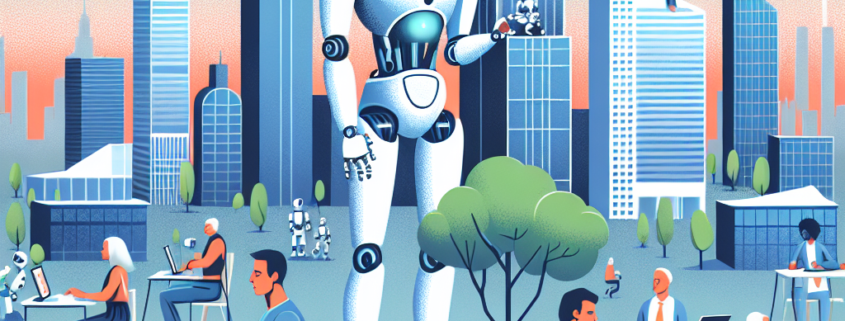The rise of AI and automation While AI has the potential to bring about significant benefits, such as increased productivity and efficiency, it also poses a threat to many jobs. Here’s a breakdown of why AI may take your job in the next 12 months and what you can do about it:
**Why AI may take your job:**
1. **Automation of routine tasks**: AI can perform repetitive, routine tasks with high accuracy and speed, making many jobs redundant.
2. **Increased efficiency**: AI can optimize processes, reducing the need for human intervention and decision-making.
3. **Cost savings**: AI can help businesses reduce labor costs by automating tasks and minimizing the need for human resources.
4. **Advancements in machine learning**: Improvements in machine learning algorithms and data analysis enable AI to make decisions and predictions with increasing accuracy.
**Jobs at risk:**
1. **Data entry and processing**: AI-powered tools can quickly and accurately process large amounts of data, making data entry and processing jobs obsolete.
2. **Customer service and support**: Chatbots and virtual assistants can handle customer inquiries and provide support, reducing the need for human customer service representatives.
3. **Bookkeeping, accounting, and finance**: AI can automate tasks such as invoicing, reconciliations, and financial analysis, making some accounting and finance jobs redundant.
4. **Manufacturing and assembly line work**: AI-powered robots and machines can perform tasks such as assembly, inspection, and packaging, potentially replacing human workers.
5. **Transportation and logistics**: Self-driving cars and trucks may replace human drivers in the future.
6. **Marketing and advertising**: AI can analyze data and create targeted advertising campaigns, potentially reducing the need for human marketers and advertisers.
**What you can do about it:**
1. **Upskill and reskill**: Invest in education and training to develop skills that are complementary to AI, such as creativity, problem-solving, and critical thinking.
2. **Focus on high-value tasks**: Emphasize tasks that require human judgment, empathy, and creativity, such as strategy, innovation, and customer engagement.
3. **Develop soft skills**: Focus on developing skills like communication, collaboration, and emotional intelligence, which are essential for working with AI systems and humans.
4. **Stay adaptable**: Be prepared to pivot and adjust to changing job requirements and industry needs.
5. **Consider entrepreneurship**: With AI, new business opportunities and industries may emerge, creating new job opportunities for entrepreneurs.
6. **Prepare for a gig economy**: With AI, the traditional 9-to-5 job may become less common, and freelancing or gig work may become more prevalent.
**Actionable steps for the next 12 months:**
1. **Assess your skills**: Evaluate your current skills and identify areas where you need to upskill or reskill.
2. **Explore new industries**: Research emerging industries and job markets that may be less affected by AI.
3. **Develop a personal brand**: Establish a strong online presence and create a personal brand that showcases your skills and expertise.
4. **Network and build relationships**: Connect with people in your industry and build relationships that can help you stay informed about job opportunities and industry trends.
5. **Stay curious and adaptable**: Continuously learn and adapt to new technologies and industry developments.
By taking proactive steps, you can prepare yourself for the changing job market and thrive in an AI-driven economy.



